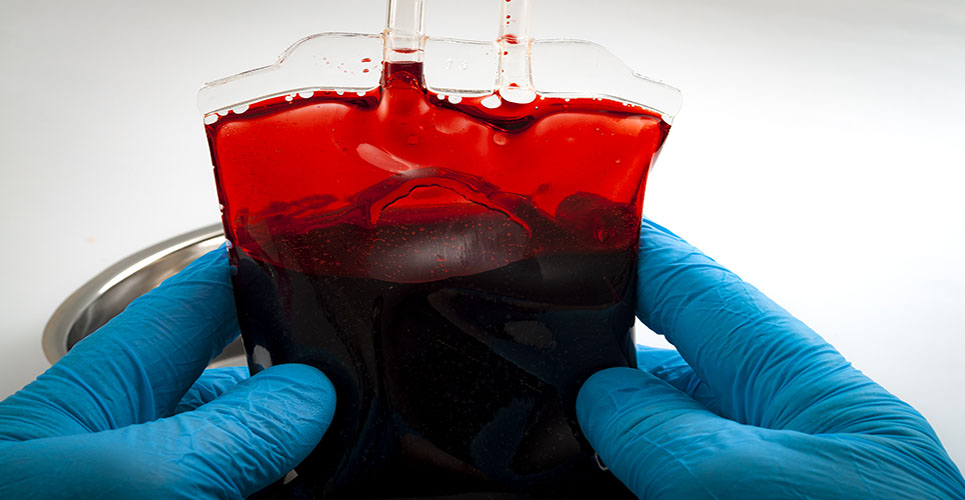Bayer HealthCare submitted an application for marketing authorisation to the European Medicines Agency (EMA) for BAY 81-8973, a recombinant Factor VIII (rFVIII) compound, for the treatment of haemophilia A in children and adults. BAY 81-8973 is a full-length recombinant Factor VIII that has demonstrated clinical evidence of efficacy when used for prophylaxis 2 or 3 times per week, with typical dosages. (1) Bayer plans to file BAY 81-8973 for approval in other countries in the coming months.
Bayer HealthCare submitted an application for marketing authorisation to the European Medicines Agency (EMA) for BAY 81-8973, a recombinant Factor VIII (rFVIII) compound, for the treatment of haemophilia A in children and adults. BAY 81-8973 is a full-length recombinant Factor VIII that has demonstrated clinical evidence of efficacy when used for prophylaxis 2 or 3 times per week, with typical dosages. (1) Bayer plans to file BAY 81-8973 for approval in other countries in the coming months.
“Clinical data from the LEOPOLD trials show that BAY 81-8973 provides bleeding control in people with severe haemophilia when infused either twice per week or three times per week – with typical dosages,” said lead investigator Johannes Oldenburg, MD, PhD, Head of the University of Bonn’s Institute of Experimental Haematology and Transfusion Medicine. “Flexible dosing gives patients and their doctors’ greater choice in matching the right treatment regimen to each person’s therapeutic requirements.”
“Bayer has long had a strong commitment to the haemophilia community, and the submission of BAY 81-8973 is an important step forward in our efforts to improve treatment options for people with haemophilia”, said Dr. Joerg Moeller, Member of the Bayer HealthCare Executive Committee and Head of Global Development.
The submission was based on positive results from 3 Phase III trials in children, adolescents and adults including a total of 205 subjects. (1,2,3) The LEOPOLD II clinical trial, demonstrated the superiority of prophylaxis versus on-demand therapy with BAY 81-8973. Results show a 93.3% reduction in median annualised bleeding rate (ABR) in the twice-per-week prophylaxis arm versus on-demand and a 96.7% reduction in the three-times-per-week arm versus on-demand (absolute risks: 60.0 to 4.0 and 2.0 respectively). (1) Patients in this study were randomised between the 3 treatment arms, actual median ABR observed were 4 bleeds when treated 2 times per week and 2 bleeds when treated 3 times versus 60 in the on demand group. Patients treated in both the twice-per-week arm and the three-times-per-week arm maintained adequate bleed control while using 21 to 42IU/kg. No treatment-related adverse events or inhibitor formation were observed. In the paediatric trial including 51 pre-treated children <12 years of age, BAY 81-8973 demonstrated good efficacy with twice or three times per week or every other day prophylaxis regimens, and no inhibitor formation was observed. (2) A clinical study in previously untreated patients is on going. Bayer presented the LEOPOLD II results at the World Federation of Hemophilia (WFH) 2014 World Congress in May 2014. (1)
About LEOPOLD
LEOPOLD II (Long-Term Efficacy Open-Label Programme in Severe Haemophilia A Disease) is a randomised, cross-over, open-label trial of male subjects aged 12 to 65 years with severe haemophilia A (<1% FVIII:C) who previously received episodic treatment. (1) In the Phase III study, 80 subjects were randomised to receive BAY 81-8973 either as a low-dose prophylaxis regimen (20–30IU/kg; n=28) twice-per-week, high-dose prophylaxis (30–40IU/kg; n=31) three-times-per-week, or on-demand (n=21). (1) The primary objective was to demonstrate the superiority of prophylaxis versus on-demand therapy, with the primary endpoint being spontaneous bleeds, trauma-related bleeds, and untreated or unspecified bleed frequency at 12 months. More information on this trial is available at www.clinicaltrials.gov (NCT01233258).(1)
About Haemophilia A
Haemophilia A, also known as Factor VIII deficiency or classic haemophilia is a largely inherited bleeding disorder in which one of the proteins needed to form blood clots in the body is missing or reduced. (4) Haemophilia A, the most common type of haemophilia, is caused by deficient or defective blood coagulation proteins, known as Factor VIII. Haemophilia A is characterised by prolonged or spontaneous bleeding, especially into the muscles, joints or internal organs. (4)
References
- Kaan Kavakli et al. Superiority of Prophylaxis vs On-Demand Therapy With Plasma Protein-Free Recombinant Factor VIII Formulated with Sucrose (BAY 81-8973):LEOPOLD II Study Results. Abstract presented at the World Federation of Hemophilia (WFH) 2014 World Congress in May 2014.
- Rolf Ljung et al. Safety and Efficacy of BAY 81-8973 for Prophylaxis and Treatment of Bleeds in Previously Treated Children With Severe Hemophilia A: Results of the LEOPOLD Kids Study, Part A. Abstract presented at the World Federation of Hemophilia (WFH) 2014 World Congress in May 2014.
- Trial to Evaluate the Efficacy and Safety of a New Full Length Recombinant Human FVIII for Hemophilia A (Leopold I). ClinicalTrials.gov Identifier: NCT01029340. Available at https://clinicaltrials.gov/ Last accessed December 2014.
- National Haemophilia Foundation. Bleeding Disorders. Available at https://www.hemophilia.org/Bleeding-Disorders/Types-of-Bleeding-Disorders/Hemophilia-A. Last accessed December 2014.
